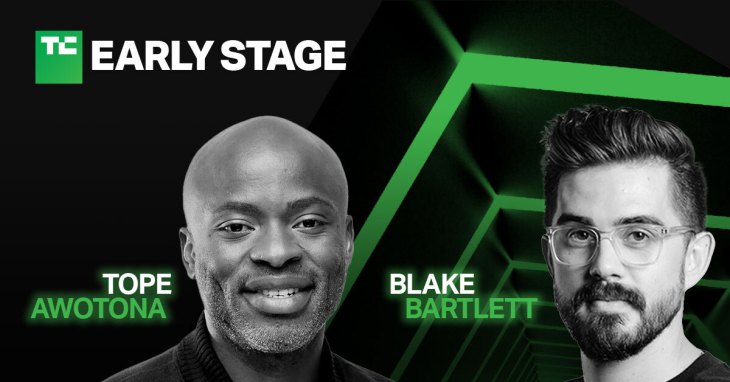Business
Timing your bootstrap with Calendly’s Tope Awotona and OpenView’s Blake Bartlett at TC Early Stage


Once the path less traveled, bootstrapping today has become a much more viable and common approach to building a startup. By not taking venture capital dollars early, bootstrapping can force founders to remain disciplined in serving their paying customers well. It’s also a pretty compelling way to minimize dilution for founders and early employees. No wonder then that a crop of unicorn enterprise startups has taken this road these past years.
Few companies in that emerging crop though have reached quite the stature of Atlanta-based Calendly. The company is not just on everyone’s calendars (literally), but has also become a $3 billion unicorn behemoth with $70 million in subscription revenue in 2020.
To get Calendly started, CEO and founder Tope Awotona raised $550,000 (which included his life savings) to get the company off the ground, and remained bootstrapped for about seven years before inking a $350 million venture round with OpenView’s Blake Bartlett earlier this year along with Iconiq. OpenView happened to be one of the few investors in the company’s single seed round as well.
Bootstrapping is a continuous commitment to not take venture capital for an extended period of time. Why make that commitment? How does a founder build the fortitude to resist the lucre of VC when it can make so many things easier? What are the advantages to bootstrapping, and when does the calculus switch from avoiding VC to embracing it?
I’m excited to talk about those questions and more with Awotona and Bartlett at our upcoming Early Stage — Operations & Fundraising event, where we explore how to answer the strategic and tactical questions that founders must make in the course of leading their startups.
Not only will we be getting Awotona’s deep perspective as a founder, but we’re also going to dig into Bartlett’s long-time relationship with Calendly and how he assiduously built a partnership there over many years to “win” what was one of the marquee deals of the year. Bartlett has backed a variety of major enterprise startups, such as Expensify (which has also demurred from the high stakes world of big-dollar VC), Highspot, Postscript and others, and I’m curious to see how he thinks about companies that go big with venture versus those who want to go big without it.
While many decisions when building a startup can be delayed, how you fund your startup (and therefore, how you fund your employees and growth) is one that must be made early and consistently. Join us and learn more about the different paths to financing startups, and how one calendar company timed its approach to greatness.
The TC Early Stage curriculum is being spread across two events, with fundraising and operations represented on April 1 and 2 and fundraising and marketing deep dives on July 8 and 9. Folks who buy a ticket to just one event will get three months of Extra Crunch for free, and folks who buy a dual-event ticket will get six months of Extra Crunch membership for free.
-

 Entertainment6 days ago
Entertainment6 days agoEarth’s mini moon could be a chunk of the big moon, scientists say
-

 Entertainment6 days ago
Entertainment6 days agoThe space station is leaking. Why it hasn’t imperiled the mission.
-

 Entertainment5 days ago
Entertainment5 days ago‘Dune: Prophecy’ review: The Bene Gesserit shine in this sci-fi showstopper
-

 Entertainment5 days ago
Entertainment5 days agoBlack Friday 2024: The greatest early deals in Australia – live now
-

 Entertainment4 days ago
Entertainment4 days agoHow to watch ‘Smile 2’ at home: When is it streaming?
-

 Entertainment3 days ago
Entertainment3 days ago‘Wicked’ review: Ariana Grande and Cynthia Erivo aspire to movie musical magic
-

 Entertainment2 days ago
Entertainment2 days agoA24 is selling chocolate now. But what would their films actually taste like?
-

 Entertainment3 days ago
Entertainment3 days agoNew teen video-viewing guidelines: What you should know















